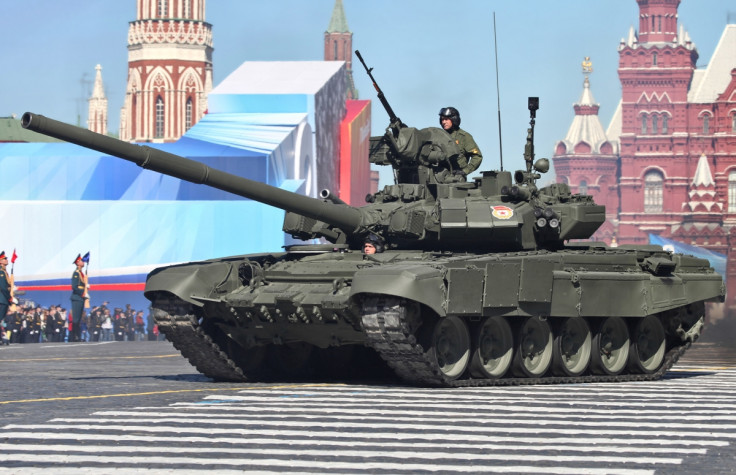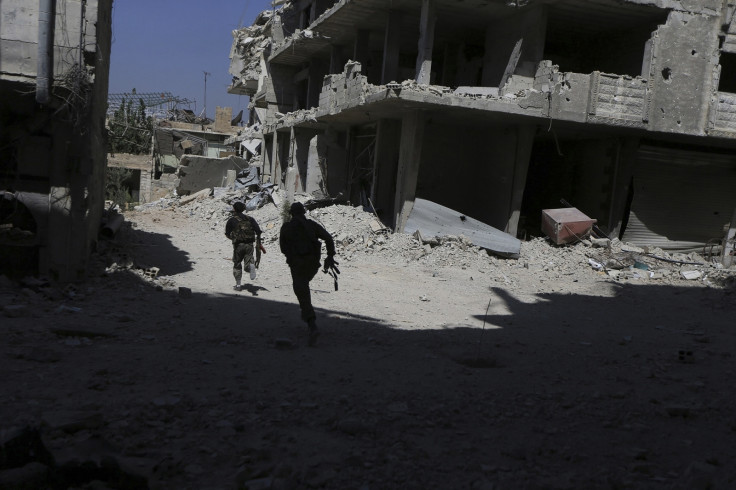Russian military presence in Syria continues as T-90 tanks spotted at Latakia

The Pentagon has expressed concern about the continuing build-up of Russian military forces in Syria, amid speculation the Russians may soon launch an offensive against Isis in support of their ally President Bashar al-Assad. Russia has dismissed the concerns, saying its actions in Syria are in line with international law.
A US security source speaking on condition of anonymity told Reuters that seven Russian T-90 tanks have been spotted near an airfield in the Assad-friendly town of Latakia, along with artillery apparently deployed in a defensive formation. It is also being claimed the airstrip is being improved.
#Syria : Many new defensive/comms positions recently built between Ghab Plain and #Latakia This one overlooking M4 pic.twitter.com/l3zvL4kbU6
— Not a spy (@finriswolf) September 14, 2015The appearance of the tanks - brought to the region aboard two cargo ships - appears to signal the Russians are preparing for some sort of military action. "We have seen movement of people and things that would indicate that they plan to use that base there, south of Latakia, as a forward air operating base," said Pentagon spokesman Captain Jeff Davis.

About two Moscow-sanctioned flights a day have been recorded at Latakia in the last seven days and around 200 naval infantry units, housing units and other military equipment have also arrived. As yet no combat aircraft or gunship helicopters are believed to have been sent.
Although Russia, like the US and much of the international community, has declared itself an enemy of Isis, unlike the West it is also an ally of President Bashar al-Assad. There is concern in the West that Russia's military presence could lead to the former Cold War foes coming into proximity on the battleground.
#Russia now has tanks in Latakia airbase #Syria . (Sky News) Probably not delivering food. pic.twitter.com/JbkqwP35n6
— Joyce Karam (@Joyce_Karam) September 14, 2015Around 250,000 people have died during Syria's four-year civil war, with millions more displaced by the conflict. Many have made the dangerous journey to Europe, where even Germany now says it is struggling to cope with the largest movement of people within Europe since World War II.
© Copyright IBTimes 2025. All rights reserved.






















